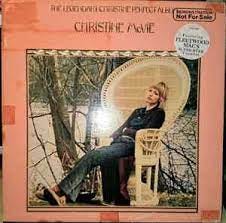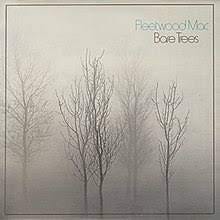Christine McVie Didn't Start Writing Great Songs in 1975
Friday Playlist: Her Nearly Forgotten Perfect Songs
Writing on deadline is hard. Writing obituaries and appreciations of artists is also hard, and it’s made more difficult by the inevitably tight deadlines. Writing these things about people with long careers — like Christine McVie, the singer, keyboardist and songwriter of Fleetwood Mac, who died this week at 79 — is a genuine journalistic challenge.
The majority of the McVie obits have been exceedingly smart. Curiously, though, many (many!) of the accompanying lists, the sidebars and playlists discussing McVie as a songwriter, have focused almost entirely on her contributions to the 1975 band reboot, Fleetwood Mac, the first album featuring Stevie Nicks and Lindsay Buckingham, and the hitmaking work that followed.
That’s where we are these days: When a star dies, the media celebrates the colossal classic-rock successes all over again, at the expense of the often equally rich and riveting work that didn’t hit the charts. The context, the building blocks, the evolutionary steps before the hits — these don’t even rate a mention.
Christine McVie didn’t start writing songs in 1975!
Her catalog includes piercingly direct blues-influenced work going back to at least 1970. That’s when her first solo album, The Legendary Christine Perfect Album, appeared; it contained her “Crazy ‘Bout You Baby” and several other strong originals, alongside a disarmingly great version of the Etta James hit “I’d Rather Go Blind.”
After she joined Fleetwood Mac, McVie found herself in the company of gifted songwriters — Danny Kirwin, Peter Green, Bob Welch. Her songs from this early ‘70s period are strikingly ethereal (in alignment with the overall tone of works like Bare Trees) and at the same time defiantly declarative, rooted at ground level. She captured the simple human desire for connection and acknowledgment (“Show Me a Smile,” from Future Games, 1971, “Come a Little Bit Closer” from Heroes Are Hard To Find, 1974) through stark durable melodies and simple language. She harnessed the hard-driving blues-fluent Mac rhythm section to express frustration with touring (“Homeward Bound,” from Bare Trees, 1972) and slipped deep observations about romantic disillusion into a startlingly perfect ray of pop sunshine, “Heroes Are Hard To Find.”
There’s a case to be made that a significant chunk of the sound concept for the 1975 band — the DNA of the vocal harmonies, the easy soft-rock rhythms and other elements — is contained within this one track. Yes, the sound evolved rapidly, as did McVie’s own writing. But the magic honey wasn’t just Buckingham and Nicks. In important ways, Christine McVie heard it first.







wow, thanks Brad! There's plenty more to say tho! She was a deep soul who wrote deceptively crystalline songs....we need more like her!
Well done, Tom! Well-written and, of course, timely. Christine deserved this tribute, especially for all Mac's fans who think the band's successes all rose and fell with Nicks and Buckingham, and for those who think there was no Mac pre-'75! I had thought about doing a Christine tribute, but not only did you beat me to it, but you far-eclipsed what I think I could have mustered! Bravo!👏✨👍